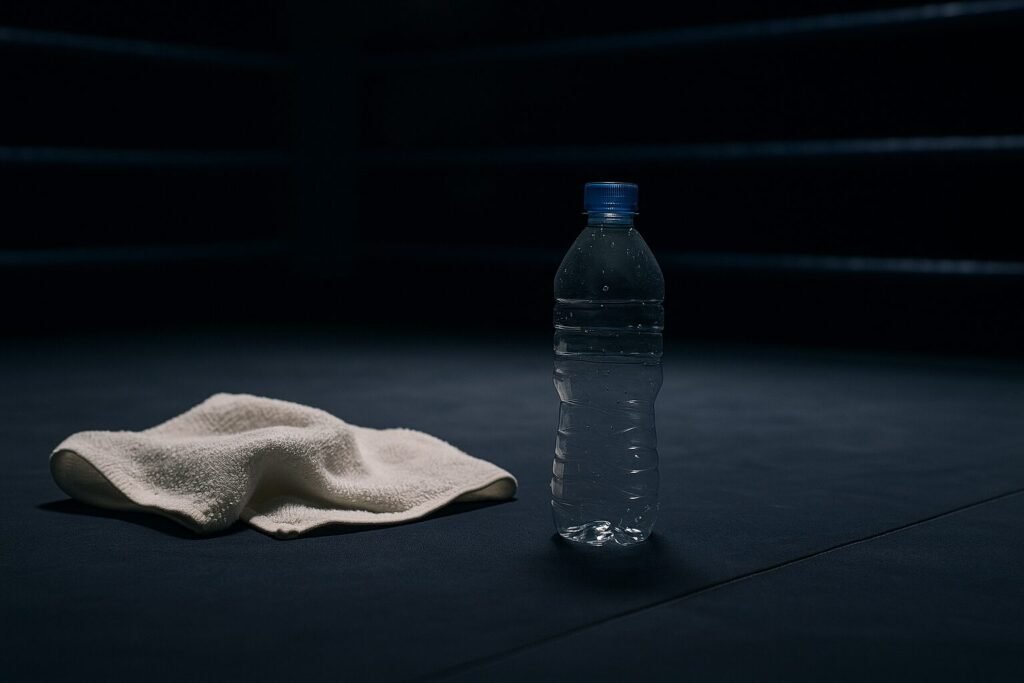When the Scales Outweigh the Fight
Boxing’s a sport obsessed with numbers — purses, punch stats, pay-per-views — but none define a rivalry quite like the ones on the scale.
The Eubank Benn rehydration clause has once again become headline material, returning for the rematch despite the fallout from April’s bout. That fight ended not just with Chris Eubank Jr getting his hand raised, but with both men taken to hospital suffering from dehydration and exhaustion.
When a “safety clause” leaves two fighters needing IVs, you have to ask: who exactly is this helping?
From Collapse to Caution
This story didn’t start in 2025. It began three years earlier, when the original 2022 clash collapsed after Conor Benn tested positive for clomifene, a banned fertility drug that can increase testosterone. The cancellation tore through British boxing and left deep mistrust on both sides.
Two years later, the rivalry was revived — and this time, every ounce counted. The agreed terms were 160lbs with a 10lb rehydration limit.
The idea was to “level the playing field.” The result was something else entirely.
The full build-up, including the long road to that contract, is covered in Eubank Benn Fight 2025
What the Clause Really Does
On paper, the rehydration rule exists to prevent fighters from dangerously draining down, then ballooning up overnight. In practice, it becomes a negotiating weapon.
Eubank Jr, a natural middleweight, was forced to come down to 160 and stay there. Benn, a natural welterweight, came up — but with a built-in advantage: the clause stopped Eubank from fully rehydrating.
The idea might sound balanced, but the evidence speaks for itself.
Both fighters ended up in hospital after the final bell. Eubank won the fight but lost his strength doing it; Benn lasted the distance but looked physically spent.
When a rule designed to protect health ends with ambulances outside the arena, you’ve got to question its purpose.
For a full breakdown of the medical aftermath, read Eubank Benn Ambulance-Gate.
You’d think that outcome would be warning enough. But early reports suggest the same rehydration clause is part of the rematch deal. It’s as if boxing refuses to learn from itself.
The irony is that the clause was introduced in the name of “fighter safety.” Yet the only thing it’s really protected so far is commercial interest — allowing promoters to stage a catchweight event without anyone admitting it’s risky.
And it’s not like this was Eubank’s first experience of over-cutting. Remember the sauna controversy? That surfaced in 2023, when he was shown using a sauna to shed final pounds — something the British Boxing Board of Control strictly forbids because it can trigger dehydration and heat stress.
Boxing seems to have turned those warnings into a checklist rather than a lesson.
Boxing Has Weight Divisions for a Reason
There’s a simple truth that gets lost in all the spin:
Boxing already solved this problem decades ago — they’re called weight divisions.
You fight at the limit your body can handle safely. If you can’t make the weight, you move up. If you’re too small, you move down.
That system exists to protect fighters from exactly the kind of scenarios that left both men needing medical attention in April.
Rehydration clauses blur that line. They let promoters market “super-fights” across divisions without admitting that both fighters are competing at a disadvantage.
Catchweights sell posters; proper divisions save careers.
Built-In Excuses
There’s another side to this too — the psychological one. Clauses like this don’t just control the body; they control the narrative.
If Eubank loses, he was drained.
If Benn loses, he was too small.
Either way, the contract has already written the excuses.
And that’s what bothers me most about this saga: we’ll never truly know who’s better if the fight keeps being shaped by fine print.
A Rivalry Losing Its Purity
When their fathers fought, there were no hydration caps, no “overnight limits,” no weigh-in mind games. They met at the proper weight and found out who the better man was.
Today, the second generation fight with nutritionists, lawyers and governing boards in the corner.
That’s not progress; that’s bureaucracy disguised as sport.
Still, credit where it’s due — both men continue to sign on the dotted line. Whatever the terms, they’re the ones who risk it all in the ring. The problem is, the system around them seems more interested in proving a point than preserving fairness.
The Final Bell
The Eubank Benn rehydration clause was supposed to make the fight safer. Instead, it turned both men into medical cases and still made it back into the next contract.
Maybe that says more about modern boxing than either fighter ever could.
Weight divisions already exist for a reason — it’s time the sport started respecting them again.
When the paperwork matters more than the punches, everybody loses.
Join the Conversation:
Do you think rehydration clauses protect fighters, or do they just create built-in excuses? Share your thoughts below and follow the rest of the Eubank–Benn series at CMBoxing.co.uk — facts first, always.

